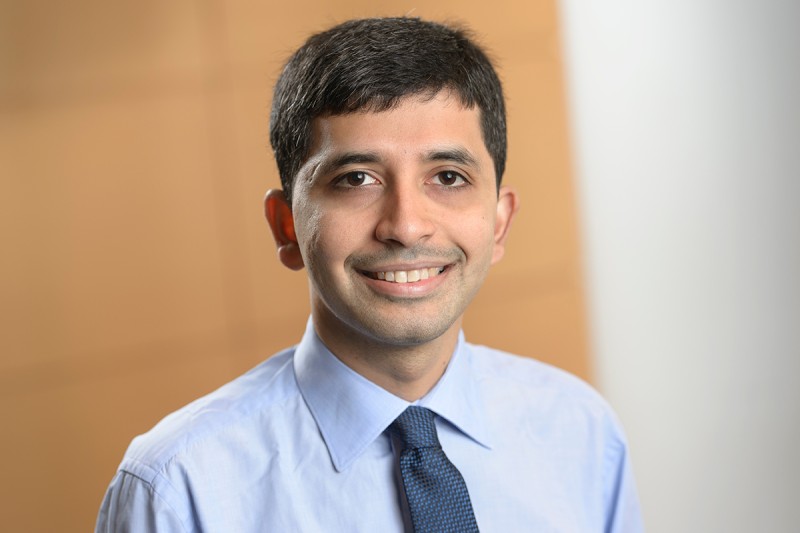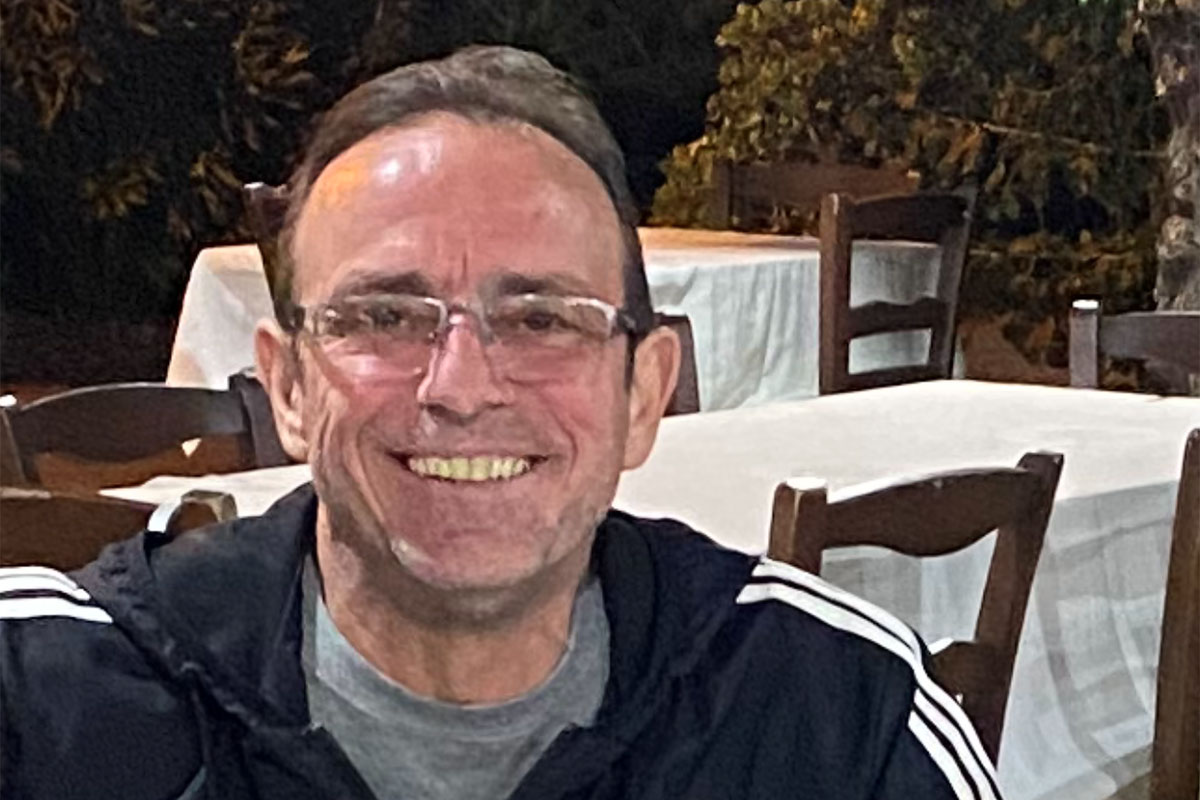
-
The first off-the-shelf (allogeneic) CAR T cell therapy for multiple myeloma appears safe and effective.
- The therapy, which targets a protein called BCMA, could allow people to get treated more quickly compared with conventional CAR T therapy.
One of the most advanced treatments for multiple myeloma is CAR T cell immunotherapy, often called a “living drug” because just one dose of genetically modified immune cells can keep cancer at bay for months or even years. But there’s been a frustrating limitation: It can take a month or more to engineer customized immune cells for an individual patient.
“Some patients with advanced disease don’t have time to wait for a personalized treatment to be manufactured from their own cells,” says multiple myeloma specialist Sham Mailankody, MBBS. “We want to be able to offer them therapy much faster.”
Now a new approach using donor cells brings the hope of giving off-the-shelf CAR T cell immunotherapy to patients in as little as five days.
Allogenic vs. Autologous CAR T Cell Therapy
In a phase 1 clinical trial at Memorial Sloan Kettering Cancer Center (MSK) and other medical centers, patients were given CAR T cells already banked from other donors (allogeneic) — instead of their own cells (autologous). The results, published in the January 23 issue of Nature Medicine, demonstrate that allogenic CAR T cell donation can be safe and effective.
What Is Autologous CAR T Cell Therapy?
Conventional autologous CAR T therapy requires cells to be drawn from a patient, genetically modified, and multiplied into large quantities so they can be reintroduced back to the patient in sufficient amounts to fight the cancer cells. This can take a month or more.
What Is Allogenic CAR T Cell Therapy?
In contrast, the off-the-shelf allogenic CAR T approach uses cells that have been taken from healthy donors, which are then genetically modified and stored in large batches, ready to be used. When a patient needs the CAR T cells, doctors test their tissue type to find the best match among the donor cells. This can take just a few days.
Allogenic CAR T Cell Clinical Trial Results
Among 24 multiple myeloma patients who received the optimal dose of this treatment, 71% responded for at least eight months (meaning the disease stopped progressing). Furthermore, nearly 90% of the patients in the trial received the allogeneic CAR T cells just five days after enrolling — more than a month and a half sooner than conventional autologous CAR T cell therapy.
None of them experienced the side effects that often occur when patient cells and donor cells reject each other.
“This is a very strong proof of concept that you can use allogeneic CAR T cells for multiple myeloma,” Dr. Mailankody says. “Starting CAR T cell therapy right away is very important, especially for those patients who have already tried multiple treatments.”
The clinical trial is continuing to enroll patients. Learn more.
Targeting BCMA With Allogenic Car T Cell Therapy
The CAR T cells are engineered to target a protein on the surface of myeloma cells called BCMA, which drives cancer growth and has proven to be a good therapeutic target. Attacking BCMA using conventional autologous CAR T cells has been effective, and the U.S. Food and Drug Administration (FDA) approved a BCMA-targeting drug called teclistamab in October 2022.
Resistant Multiple Myeloma Survival Story, Using Allogeneic CAR T Cells
The novel treatment using donor cells offered new hope when Diamantis Sinis seemed to be out of options. Diamantis was diagnosed with multiple myeloma in 2018 at age 57. For two years, under the care of MSK hematologic oncologist Malin Hultcrantz, MD, he received multiple standard treatments — targeted therapies, chemotherapy, an autologous stem cell transplant, and immunotherapy. But his cancer kept returning. In fact, the last treatment seemed to have no effect at all.
In October 2020, Dr. Hultcrantz brought Dr. Mailankody in to confer. The doctors agreed that given Diamantis’ urgent situation, his best option was joining the allogeneic CAR T clinical trial. He could start the experimental therapy right away.
“I had gone through everything with my chemo and other treatments — losing my hair, feeling sick, my immune system knocked down — and it kept coming back,” Diamantis says. “I said, ‘This is aggressive, I have to do something.’ ”
What Diamantis’ Treatment Was Like With Allogenic Car T Cells for Multiple Myeloma
Two weeks after completing screening assessments, Diamantis began receiving the allogeneic CAR T cells. He stayed at the main hospital at MSK for two weeks while the doctors managed symptoms such as cytokine release syndrome, a common side effect of CAR T therapy that includes fever and low blood pressure.
“Dr. Mailankody and Dr. Hultcrantz, the nurses, all the people that work there, I could never thank them enough,” Diamantis says. “They were always checking on me, explaining everything to me about what was going on with how I felt.”
Suppressing Fire Between Donor Cells and the Patient
Using allogenic CAR T cells is a major step forward, but researchers first had to clear a hurdle. Often, transplanted donor cells attack the patient’s normal cells — a side effect called graft-versus-host disease (GVHD). The reverse can happen, too, when a patient’s own immune cells attack donor cells.
To prevent both kinds of rejection, researchers in the phase 1 study gave patients an immune-suppressing treatment before the transplant. First, patients received an antibody called ALLO-647, which binds to a marker (CD52) found on their own immune cells to stop them from attacking the donor cells. In some cases, they also received chemotherapy drugs to help further block the immune system.

Then the doctors gave the allogeneic CAR T cells, called ALLO-715. On these CAR T cells, scientists knocked out a T cell protein called TRAC. Getting rid of TRAC prevented the donor CAR T cells from attacking the patient’s normal cells (GVHD), while still attacking the BCMA protein on the cancer cells. This exquisite manipulation controlled the attack on cancer.
“These modifications appear to overcome the two major challenges of an off-the-shelf immunotherapy,” Dr. Mailankody says. “We saw no GVHD in any of the patients in the trial, and the transplanted cells survived and multiplied after they were infused, suggesting that knocking out CD52 was effective for preventing rejection of the transplanted cells.”
Both ALLO-647 and ALLO-715 are manufactured by the biotechnology company Allogene.
Dr. Mailankody says Allogene and other companies are working to develop even more effective allogeneic CAR T cells. “We don’t know yet if we will be using this exact version of the CAR T cells in the future,” he says. “But this concept of knocking down CD52 and TRAC in order to give allogeneic CAR T cells has applications beyond multiple myeloma that could benefit other blood cancers, and even some solid tumors.”
Diamantis Enjoys Life Again
Two years after his allogenic CAR T cell immunotherapy, Diamantis is doing so well he was strong enough to take a monthlong vacation in Greece, his homeland. Now retired from his career as an electrician, he enjoys spending time with his wife, three children and grandchild. He walks every day to keep up his strength. He is grateful for a second chance.
“I was a mess from this disease, and nothing was working,” he says. “Thank God for the people who take care of us and do the research for us.”


